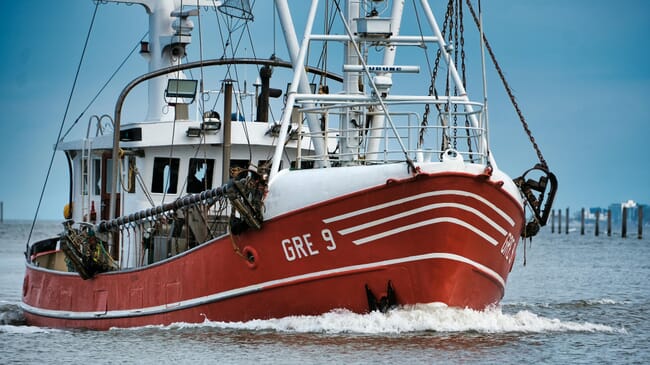
© Wolfgang Krzemien
The report by marine conservation organisation, Sustainable Fisheries Partnership (SFP), demonstrates that two fisheries have improved their performance, six fisheries deteriorated, and a new assessment of four fisheries in India revealed major challenges – including a lack of data that has prevented the fisheries from being fully assessed.
For the first time since 2015, half the fisheries in the report (11 of 22, representing 41 percent of volume) dropped into the ‘’poorly managed” category, based on updated FishSource scores.
“We’ve seen a steady decline in global performance of key fisheries since 2018, and unfortunately this year the picture got worse,” said SFP global supply chains director, Dave Martin in a press release. “Where in the past it was largely persistent management issues that kept fisheries out of the top categories, for 2024 we see drops in the current and/or future stock health for several fisheries. It’s important to note these fisheries experience natural fluctuations, and timely management responses will improve stock health. But the results highlight the critical need for seafood supply chains to strengthen engagement in fisheries management to ensure healthy fisheries and ecosystems and meet growing customer and consumer demands for responsible seafood.”
The 2024 report marks the fifteenth edition of the annual SFP assessments, which evaluate key fisheries based on sustainability scores in FishSource, SFP’s public database of fisheries information.
A 15-year review, combined with expanded coverage of FishSource Environment and Biodiversity scoring, which goes beyond traditional fisheries management to focus on bycatch and ecosystem impacts, shows that small pelagic fisheries around the globe face a number of common challenges. These include limited data collection, minimal research on non-target species or ecosystems and lack of effective joint management of stocks shared by multiple countries. This situation underscores the urgent need for continued and stronger industry engagement with regulators and key stakeholders.
“The latest Reduction Fisheries Report is a wake-up call for the industry on the need for following the management of the most relevant fisheries used for feed production. The information disclosed here will allow us to engage more closely with our supply chain to identify and implement actions aimed at ensuring that our operations contribute to healthy fisheries and ecosystems,” said Jorge Diaz Salinas, sustainability and communications director at Skretting.


